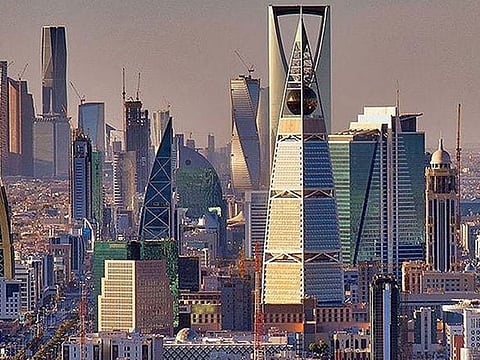Know the assets Saudi Arabia is selling
Kingdom hopes to raise $11b by selling stakes in utilities, soccer clubs, flour mills

Dubai: Saudi Arabia could be in for a busy year of asset sales if the kingdom sticks to its plans.
The government hopes to generate about $11 billion (Dh40.39 billion) by 2020 through its privatisation programme, which includes the sale of stakes in utilities, soccer clubs, flour mills and medical facilities.
The sales are key to the country’s efforts to wean the economy off oil, but so far have been dogged by delays — most notably the IPO of oil giant Aramco.
“With the current status of the initiatives and the progress the privatisation Supervisory Committees are making, we see these as attainable targets,” according to the National Centre for Privatisation and PPP, which is responsible for most of the privatisation expect certain deals like Aramco and the stock exchange. “Progress in most cases is going according to schedule.”
Saudi Arabia plans to complete the sale of four flour milling companies and Saudia Medical Services facilities this year, according to the NCP.
The kingdom’s privatisation process “has been one of the areas of the long-term reform agenda that has missed expectations, and has done so repeatedly,” said Jean-Paul Pigat, head of research at Lighthouse Research. “Relative to last year I don’t think macro or financial market conditions at the start of 2019 are in any way suggestive of an acceleration in privatisation.”
Here’s a look at where some of the kingdom’s biggest privatisation are up to:
Saudi Aramco
Crown Prince Mohammad Bin Salman told the world in 2016 that he meant business when announcing the sale of shares in Aramco in what would be the world’s biggest IPO.
But it was pushed out from 2018 to late 2020 or early 2021 so the company, known formally as Saudi Arabian Oil Co., could complete a deal to buy a $70 billion stake in the kingdom’s biggest petrochemical company Sabic.
Stock exchange
Tadawul, the Middle East’s largest stock exchange, unveiled plans for a public offering in 2014, hiring HSBC Holdings Plc as financial adviser in 2016. It was meant to take place in 2018, but people with knowledge of the matter said in April that it’s been pushed back to this year at the earliest.
That’s on hopes that the inclusion of Saudi stocks in indexes compiled by FTSE Russell and MSCI Inc. could boost the company’s value.
Riyadh airport
Plans to sell a stake in King Khalid International Airport were said in September to have been put on hold. The Saudi Civil Aviation Holding Co. was said to have asked local and international investment banks in 2017 to pitch for the role of adviser on the sale.
Also Read: Riyadh to give 25 schools to private sector
Flour mills
Plans to sell four flour milling companies by Saudi Grains Organisation this year will come three years after the idea was announced, and well past the initial target of the end of 2016. Potential buyers had until November to submit bidding qualification applications. HSBC Saudi Arabia is advising on the deal.
Power plant
The sale of the $7.2 billion Ras Al Khair power plant on the east coast is expected to be done by 2020. BNP Paribas SA was hired to advise on the deal in September 2017.
The sale is part of a broader strategy to privatise Saline Water Conversion Co. by selling some of its assets and developing plants.
Football clubs
Plans to privatise football clubs started in 2016. There are currently no “obstacles” that could derail the timeline to sell the clubs by 2020, the NCP said. Turki Al Al Shaikh, former head of the Saudi Sports Authority, predicted in June that the 16 clubs could raise $800 million to $1.5 billion. The NCP spent the past year developing the legal and commercial framework to cover the use of advertising, sponsorship deals and broadcast rights, it said.
Up for grabs
The NCP said it will also open tenders for municipal assets related to commercial-land for development, renewable energy PPP projects in solar and wind, parking centers; a second cargo license station at King Khalid International Airport, the establishment of an agriculture company and a PPP for independent schools, as well as school buildings on a build-maintain-transfer basis.





